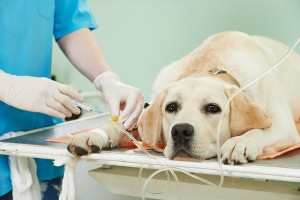Veterinary Science is the science of diagnosing, treating and curing the diverse types of diseases in birds and animals. The subject broadly covers the study of animal physiology, treatment and prevention of diseases among animals. The basic principles of this specialized branch of study are quite similar to that of human medical sciences. A veterinary doctor not only takes care of animal health but also includes scientific breeding and handling of livestock.
Besides giving treatment, Vets perform surgery prevent spreading of diseases in animals by administering timely vaccination and medicines and give advice on care of pets and farm animals. Their activities may also include Animal husbandry- animal breed improvement by ‘selection breeding’ and artificial insemination, animal research in order to control spread of diseases transmitted through animals; thus protecting the public from exposure to diseases carried by animals, wildlife conservation, poultry management and health care, livestock insurance and rural development. Broadly a veterinary doctor has a major role in the conservation of livestock and domestic animal wealth. Veterinary doctors deal with the treatment, care and handling of domestic pets, livestock, and animals in the zoo, laboratory, sporting animals or animals with the government’s animal husbandry departments. They take up practice exclusively of either large animals such as cattle including horses, pigs, sheep; poultry etc or small animals mainly household pets including dogs, cats, birds etc. or both. The approach in treatment varies according to different animals.
Veterinary research includes research on prevention, control, diagnosis, and treatment of diseases of animals and on the basic biology, welfare, and care of animals. Veterinary research transcends species boundaries and includes the study of spontaneously occurring and experimentally induced models of both human and animal disease and research at human-animal interfaces, such as food safety, wildlife and ecosystem health, zoonotic diseases, and public policy. By its nature, veterinary science and medicine is comparative and gives rise to the basic science disciplines of comparative anatomy, comparative physiology, comparative pathology, and so forth. In recent times, the application of molecular biology to problems in veterinary science has blurred the distinction between medical science and veterinary science in many fields.

